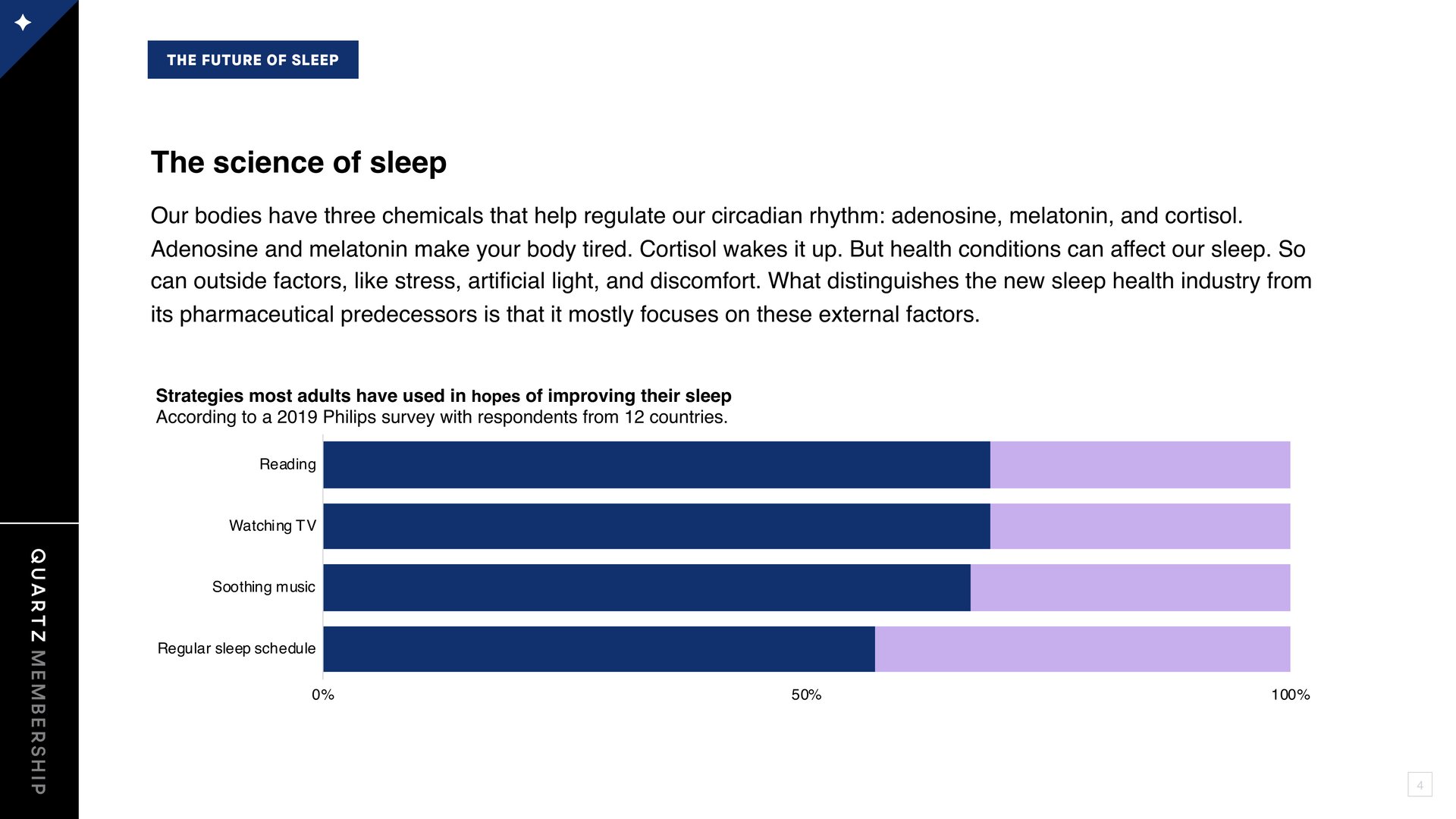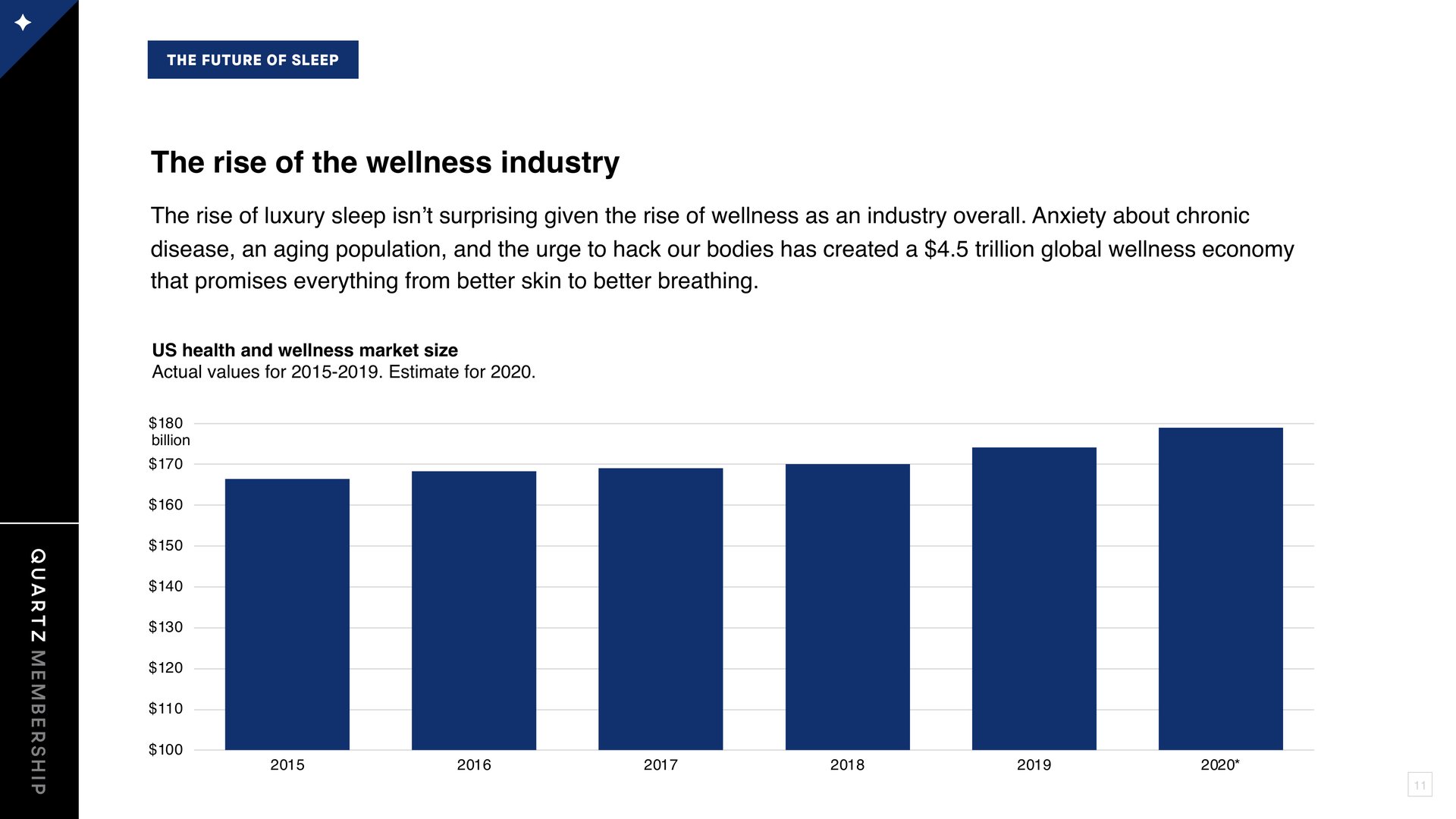The future of sleep
Some 470 startups exist to sell you better sleep. Sleep aids are now a $70 billion industry, and “sleep health” companies—those that fall outside of traditional medical and pharmaceutical sleep aids—bring in $30-40 billion on their own. Casper, an online mattress startup and star of the new sleep industry, is making plans to go public. How did Casper and its peers manage to monetize a basic function of life? And why are consumers buying in?


Some 470 startups exist to sell you better sleep. Sleep aids are now a $70 billion industry, and “sleep health” companies—those that fall outside of traditional medical and pharmaceutical sleep aids—bring in $30-40 billion on their own. Casper, an online mattress startup and star of the new sleep industry, is making plans to go public. How did Casper and its peers manage to monetize a basic function of life? And why are consumers buying in?
Quartz’s latest presentation tells you how Casper and its peers managed to monetize a basic function of life—and takes a look at the global forces that primed consumers to buy in.

Adults around the world are struggling to sleep well. A Philips survey of 12 countries found that two-thirds of adults wake up at least once during the night, and most have used or currently use strategies they hope will improve their sleep. Global sleeplessness has serious consequences. One study found that 20% of car crashes resulting in hospitalization or death are attributable to driver fatigue. And too little sleep is tied to a number of chronic health problems.

There is no shortage of startups willing to help consumers on their quest for better sleep. CNBC reports that there are at least 175 mattress-in-a-box companies—online brands like Casper, Tuft & Needle, and Tediber that a better sleeping and shopping experience. Apps and wearables that track sleeping habits are also incredibly popular. US startup Sleep Cycle says its app users have tracked 4.38 billion hours of sleep since 2009. The success of online mattress and sleep-tracker startups paved the way for a boom in luxury sleep items—from “breathing,” cuddly robots to wifi-enabled mattress pads. Some of these startups have found significant success. Online bed and mattress retailer Dreams and Calm, a meditation and bedtime app, are both valued at more than $1 billion.

The sleep economy has risen in tandem with the wellness economy. Products and experiences that promise better health, personal transformation, and general wellness are increasingly profitable. The Global Wellness Institute values the market at $4.5 trillion dollars.
To see all of the slides, you can view the PDF version or download the PowerPoint file, which includes our sources and notes. This is one of an ongoing series of member-exclusive presentations, which you can read, reformat, and use as you wish.
Please share any feedback about what would make these presentations more useful—or topics you’d like to see us cover—by emailing us at [email protected]. These presentations are an exclusive benefit for Quartz members. We’d love it if you’d encourage any friends or colleagues who express interest to become a member so they can access them too.